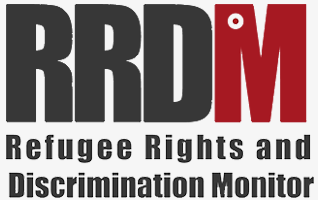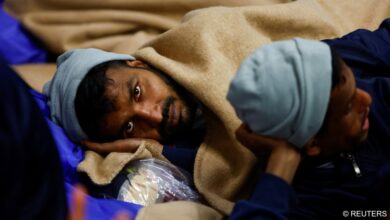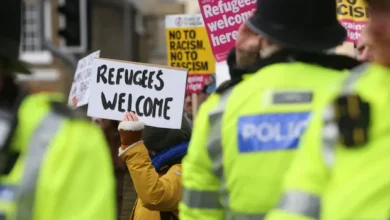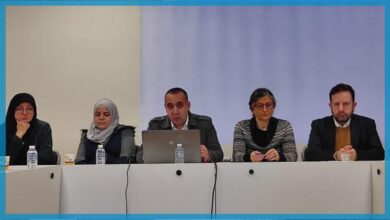3 QUESTIONS – World’s human rights and discrimination agenda in 2022

BY|Anadolu Agency
As result of the rising political right, that refugees and religious and ethnic minorities will likely continue facing discrimination in 2023
Human rights violations and discrimination in 2022, along with possible scenarios of future abuse, are discussed here in three questions.
What happened in the world in 2022?
As far-right movements continued their meteoric rise throughout the year, discrimination became a worsening problem for people from many different cultures and races across the world.
Jordan Bardella was elected on Nov. 5 to take the helm of the French far-right party, National Rally, which opposes Muslim immigration from Africa and the Middle East. The party vowed to maintain its anti-Muslim stance under Bardella, who has been a member of the European Parliament since 2019.
The European Court of Justice ruled in favor of a headscarf ban on Oct. 14, allowing companies to prohibit staff from entering workplace grounds while wearing visible “religious, philosophical or spiritual signs” under certain conditions. The decision raised fears of possible arbitrary headscarf bans by employers in Europe.
Despite zero-tolerance rules against all forms of discrimination at the 2022 FIFA World Cup in Qatar, the tournament was marred by hate speech on and off the field, including on social media. Middle Eastern and Black football players in particular became the targets of racist comments and abuse.
The Russia-Ukraine war displaced millions of people and resulted in a fresh surge in migration. Reports by international organizations have highlighted differing treatment toward people who escaped from the Syrian conflict and those who fled the war in Ukraine.
European countries apologized for past genocides, while the US government officially declared the persecution of Rohingya Muslims by Myanmar’s military a genocide.
Pope Francis apologized on July 25 to Indigenous peoples for abuses they faced in church-run residential schools.
The death of 22-year-old Mahsa Amini, who was detained in September in Iran’s capital Tehran over “inappropriate dress,” sparked protests across the country.
Iran Human Rights, based in Norway, announced on Nov. 22 that 416 people had been killed in the demonstrations. Iran was expelled from the UN Women’s Rights Commission in December over its violations of women’s rights.
What were the most problematic areas?
Ethnic discrimination was at the top of the agenda in 2022 in the midst of the refugee and migration crisis. The Russia-Ukraine war that began in February and the Syrian civil war, ongoing for 12 years now, have made discrimination and hate crimes against refugees a global problem.
The policies of the Hindu nationalist Bharatiya Janata Party (BJP) in India, which has been in power since 2014, have meanwhile led to an increase in attacks on Muslims, the largest minority in the country.
What awaits the world in 2022?
The Ukraine-Russia war is not expected to end soon, meaning that the future of Ukrainian refugees will also remain a major issue not only in Europe but in the rest of the world as well.
Winning Israel’s Nov. 1 snap elections, right-wing Likud Party leader Benjamin Netanyahu made his return as the country’s prime minister, raising concerns about possible human rights abuses. His government is expected to continue to pursue its far-right and oppressive policies in 2023.
The decision by the European Court of Justice allowing employers to prohibit visible “religious, philosophical and spiritual symbols” on staff has laid the groundwork for headscarf bans at the workplace. Employer-employee disputes can be expected, especially in countries where extremists and the far-right are on the rise.
In short, due to the rise of right-wing movements, religious and ethnic minorities, along with refugees, are likely to continue facing discrimination in the year ahead.




